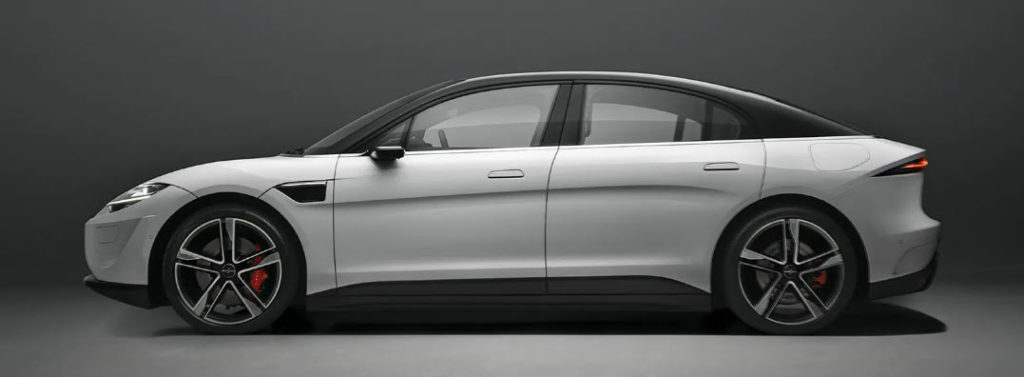Okay, it’s hard for me not to make fun of the name of this new car, but having done product naming in the past myself, I know just what a huge pain it is. I want to offer the person who came up with the name “Afeela” my sympathy. Given where they ended up, getting an approved name must have been a nightmare.
However, this car is incredibly interesting because it blends two companies in a way Tesla never did (but should have) to create the next-generation autonomous electric car. You see, when you go autonomous, you also have to think about the passengers of the car and the fact that even the person sitting in the driver’s seat (who won’t actually be driving) will need to be entertained.
As the car evolves from a platform that was mostly focused on the driver and driving to something more like a horizontal elevator, everything will need to be rethought. And if you are going to go down the entertainment route, what better partner for a car company to have than Sony, which has been doing everything from making the tools to create consumer content to creating that content initially. In effect, the Afeela has the potential to jump about a decade ahead of where the traditional car industry is. That makes it very interesting because that’s kind of what Tesla initially did.
Let’s talk about the Afeela, which will launch in 2025 but was introduced at CES 2023.
The Afeela Autonomous Electric Car
While I struggled with the name, the fact is it does showcase that this car has a focus that is more tied to the experience of riding in a car driven by a machine than it is tied to the driving experience. This means that typical car metrics (like 0 to 60 speed times, torque, horsepower, and cornering force) won’t make much sense for this car. It will be measured by how people enjoy the riding experience rather than how it theoretically will outperform another car in a race that the owner will likely never have.
The irony of the existing car market is that people buy off-road cars that never go off-road and high-performance cars that are never driven on the track, which is probably a good thing. If people did use the performance features of their high-performance car, they’d crash or get into trouble, which makes promoting those features without requiring the training needed to use them, well, kind of stupid.
In contrast, the Afeela is designed to get you to your destination safely, comfortably, and in an entertaining fashion, not by driving aggressively but by providing in-car entertainment (like built-in movies and PlayStation gaming) that will keep your mind off of the trip. I immediately wished for an Augmented Reality (AR) feature that would allow you to virtually shoot at or blow up the cars around you. I can imagine future ad hoc group games between passengers in cars that were in close proximity, either acting collaboratively or against each other in mini-tournaments to pass the time.
In terms of physical design, the car looks a lot like the Lucid Air, which is interesting given the Lucid in a recent test became the quickest production car in the world, dusting a Bugatti Veyron costing 20X what the Lucid is expected to cost. (I have a deep desire for a Lucid now just to surprise a Bugatti at some future point.)
This is to say that even though the Afeela isn’t supposed to be high-performance, given what Lucid just did, it could still be one of the quickest cars to ever be brought to market. At the heart of the car is the Qualcomm automotive platform, which has emerged as one of the viable technology choices for autonomous cars and likely reflects the deep relationship Qualcomm has with Sony’s phone division. This should ensure that the connectivity options and energy efficiency (this last is important in any electric vehicle) are market-leading.
Wrapping up
With a massive number of sensors (45), in car music, movies, and gaming that will likely be unmatched when it releases in 2025 as a 2026 model, and the very latest in autonomous driving technology, the Afeela (which likely will be sold in Acura dealerships) may set a new bar for autonomous cars by showcasing how the automotive market will evolve in the 2030s, only a decade earlier. In a way, Honda and Sony have an opportunity to do to the car industry what Apple did to the smartphone industry two decades ago: Spin the market by first figuring out the next destination for car development before anyone else does.
Now let’s see if they can execute (Japanese companies are famous for being able to collaborate well; this will be a test of if that is still true today). The big question isn’t whether these three companies can execute but whether the car market will be ready for an autonomous electric car that appears so far ahead of where it currently is. I hope so.



